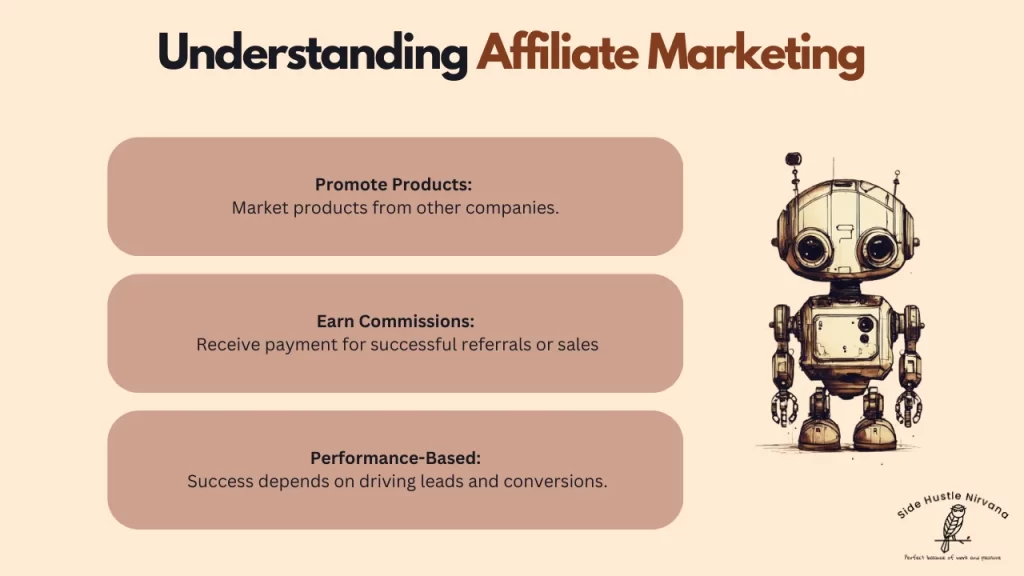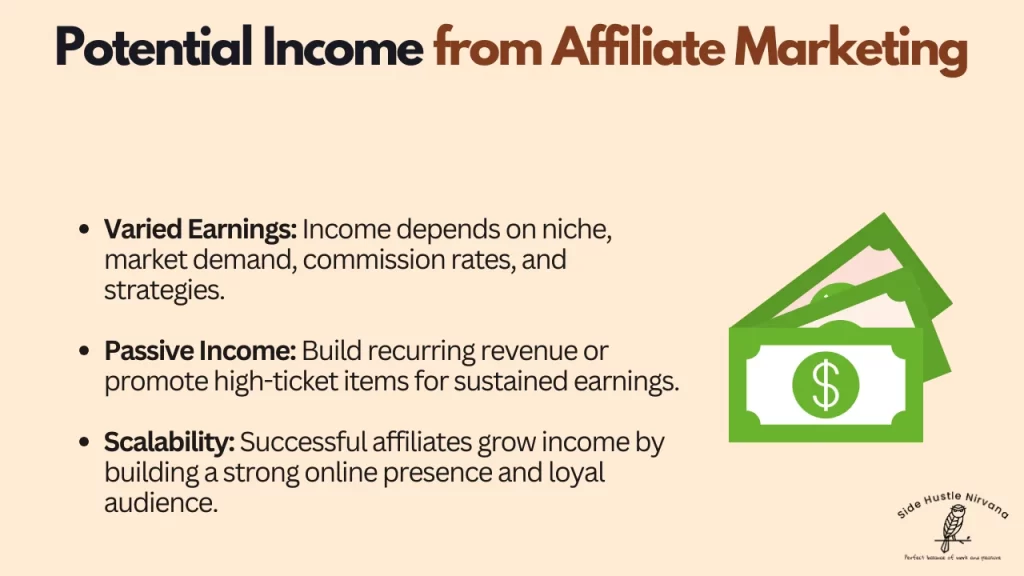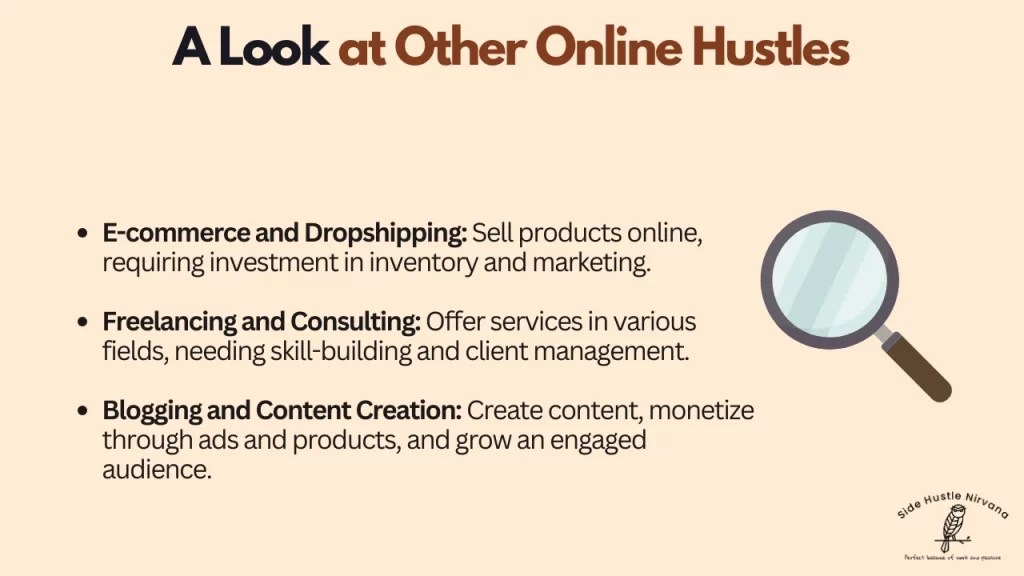Affiliate Marketing vs. Other Online Hustles: Why It’s the Perfect Side Business
Affiliate marketing has become a popular choice for individuals looking to earn extra income online. With its low startup costs, passive income potential, and scalability, it offers unique advantages compared to other online hustles. In this article, we will explore the basics of affiliate marketing and compare it with other online business opportunities to understand why it stands out as the perfect side business.
Understanding Affiliate Marketing

The basics of affiliate marketing lie in the concept of promoting products or services of other companies and earning a commission for each successful referral or sale. It is essentially a performance-based marketing strategy where affiliates leverage their online platforms to generate leads and drive conversions for the merchants they are affiliated with.
The Basics of Affiliate Marketing
At its core, affiliate marketing involves the following parties:
- The Merchant: The company or individual that offers products or services and wants to increase their sales.
- The Affiliate: The person who promotes the merchant’s products or services through various marketing channels.
- The Customer: The individual who purchases the product or service based on the affiliate’s recommendation or marketing efforts.
How Does Affiliate Marketing Work?
Affiliate marketing operates on a revenue-sharing model. Affiliates earn a commission for each sale or lead they generate through their affiliate links or promotional efforts. These links contain a unique identifier that helps track the source of the referral and ensures the affiliate receives proper credit for their efforts.
Potential Income from Affiliate Marketing

The income potential in affiliate marketing varies widely, depending on factors such as the niche, market demand, commission rates, and the affiliate’s marketing strategies. While some affiliates earn a few hundred dollars a month, others make thousands or even millions. Passive income streams can also be built by promoting products or services that offer recurring revenue or high-ticket items.
Affiliate marketing has gained significant popularity in recent years due to its potential for individuals to earn a substantial income from the comfort of their own homes. The flexibility and scalability of this business model make it an attractive option for those looking to escape the traditional 9-5 grind.
Successful affiliates often invest time and effort into building a strong online presence and cultivating a loyal audience. They create valuable content that resonates with their target market and establish themselves as trusted authorities in their respective niches. By consistently delivering value and recommending products or services that align with their audience’s needs, affiliates can build a loyal following and increase their earning potential.
A Look at Other Online Hustles

Affiliate marketing is just one of the many online hustles available today. Let’s take a closer look at a few alternative options:
E-commerce and Dropshipping

E-commerce involves selling physical or digital products directly to customers through an online store. This business model requires careful consideration of product selection, pricing strategies, shipping logistics, and customer service. On the other hand, dropshipping is a business model where individuals act as intermediaries between customers and suppliers, without managing inventory. It involves finding reliable suppliers, optimizing product listings, handling customer inquiries, and managing returns and refunds. Both options require investment in product sourcing, inventory management, customer service, and marketing strategies to stand out in the competitive online market.
Freelancing and Consulting

Freelancing and consulting offer the flexibility of providing services in various areas, such as writing, graphic design, web development, marketing, or professional expertise in a specific field. These hustles require specialized skills, building client relationships, and managing multiple projects simultaneously. Freelancers often need to market their services, negotiate contracts, deliver high-quality work on time, and handle administrative tasks like invoicing and taxes. Consultants, on the other hand, provide expert advice and solutions to clients, requiring industry knowledge, problem-solving skills, and the ability to communicate effectively with stakeholders.
Blogging and Content Creation

Blogging and content creation involve creating valuable content through written articles, videos, podcasts, or social media platforms. Monetization methods include display advertising, sponsored content, brand partnerships, or selling digital products. Building a successful blog or content platform requires consistent quality content creation, audience growth, and engagement. Content creators need to understand their target audience, stay updated on industry trends, optimize content for search engines, and engage with their followers across various online platforms. Successful bloggers often diversify their income streams by offering online courses, merchandise, or exclusive content to their loyal followers.
Comparing Affiliate Marketing with Other Online Hustles
Now let’s delve deeper into the world of online hustles by comparing affiliate marketing with a few alternative options, considering various factors and nuances.
Apart from the mentioned online hustles, another popular avenue is creating and selling digital products. This hustle involves developing e-books, online courses, or software, which can require a significant time investment upfront but can lead to passive income once the products are launched. Unlike affiliate marketing, where you promote others’ products, creating digital products allows you to have full control over your offerings and pricing.
Startup Costs Comparison
Affiliate marketing stands out with its low initial investment requirement. It does not involve creating or managing physical products, inventory, or shipping. Other hustles such as e-commerce and dropshipping may require substantial upfront capital for product sourcing, website development, and advertising campaigns.
On the other hand, digital product creation may involve costs related to software tools, marketing, and platform fees. However, compared to traditional e-commerce ventures, the overhead costs are significantly lower, making it an attractive option for individuals looking to start an online business with limited funds.
Time Investment and Flexibility
Affiliate marketing offers flexibility in terms of time investment. Once established, passive income streams can be generated from existing content and promotions, allowing affiliates to earn money while focusing on other ventures or enjoying personal time. Other hustles, especially freelancing and consulting, often demand significant time investment as it directly correlates with income generation.
Similarly, digital product creation requires a substantial time commitment during the development phase. However, once the product is launched, updates and customer support may be the primary time-consuming tasks, allowing for more flexibility in managing day-to-day operations compared to services-based hustles.
Income Potential and Stability
The income potential of affiliate marketing can be substantial, especially with the ability to promote high-demand products or services and earn recurring commissions. While freelancers and consultants can charge premium rates for their services, their income relies on actively pursuing and completing projects. The stability of income in affiliate marketing can be higher once solid referral sources are established.
When it comes to digital products, the income potential can be lucrative, especially if you create evergreen products that continue to sell over time. However, market saturation and changing consumer preferences can impact the stability of income in this hustle. Diversifying your product offerings and staying updated with market trends are crucial to maintaining a steady revenue stream in the digital product space.
Why Affiliate Marketing Stands Out

Given the comparisons above, let’s delve into why affiliate marketing emerges as the perfect side business:
Low Startup Costs
Unlike many other online hustles, affiliate marketing allows individuals to start with minimal upfront expenses. With no need for product creation, inventory management, or shipping logistics, affiliates can focus on promoting products or services and earning commissions without the financial burden of maintaining a physical business.
Passive Income Potential
Affiliate marketing offers the opportunity to build passive income streams. Once affiliates establish their online presence and create valuable content, their affiliate links can generate income even when they are not actively promoting or working on new content. Passive income allows for financial freedom and the potential to earn money while pursuing other passions or side hustles.
Scalability and Growth Opportunities
Affiliate marketing provides scalability and growth opportunities. Affiliates can expand their reach by targeting new niches, creating additional content, or partnering with multiple merchants. With the potential to earn commissions from a diverse range of products or services, affiliates can adapt their strategies and tap into new markets to fuel their growth.
In conclusion, when it comes to online side businesses, affiliate marketing offers a unique set of advantages that make it stand out among other online hustles. Its low startup costs, potential for passive income, and scalability make it an attractive choice for individuals looking to earn extra money while maintaining flexibility and independence in their entrepreneurial pursuits.







